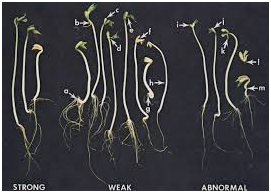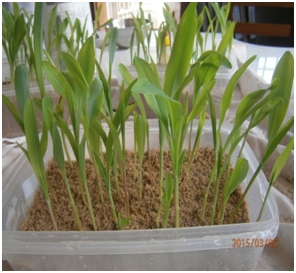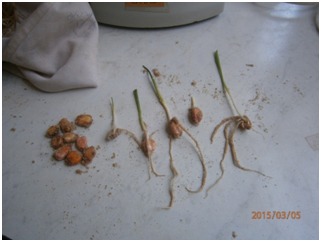
 The physical quality of the seeds is affected by many factors, most importantly insects and disease, moisture and temperature. At any time from the harvest of the seeds to their subsequent planting to produce a crop, less than optimal handling can negatively affect their ability to germinate and grow into a healthy plant. At all stages along the seed value chain, problems are experienced, but until now, it has most often not been possible to identify exactly what went wrong and where and when the problems occurred.
The physical quality of the seeds is affected by many factors, most importantly insects and disease, moisture and temperature. At any time from the harvest of the seeds to their subsequent planting to produce a crop, less than optimal handling can negatively affect their ability to germinate and grow into a healthy plant. At all stages along the seed value chain, problems are experienced, but until now, it has most often not been possible to identify exactly what went wrong and where and when the problems occurred.
The only way to know what is going wrong with the seeds you buy/sell, is to test it at the time of purchase/selling, at the time of delivery in the field or with input dealers. If, in the field, you don’t have time to send samples for formal testing, you can do basic visual, cut-test and blotter-paper germination tests. The methodologies for this are not complicated, but neither are the results as accurate as a formal test.
 Even if you need to expedite delivery or use the seed immediately and can’t wait for test results, having your seed tested, as a matter of routine, can assist you in subsequently identifying the cause of problems that arise and who should be accountable for that.
Even if you need to expedite delivery or use the seed immediately and can’t wait for test results, having your seed tested, as a matter of routine, can assist you in subsequently identifying the cause of problems that arise and who should be accountable for that.
Some of the seeds Chemiphar can test for you are:
- Beans (Phaseolus vulgaris)
- Groundnuts (Arachis hypogaea)
- Pigeon peas (Cajanus cajan)
- Millet (Eleusine coracana)
- Cowpeas (Vigna unguiculta)
- Cabbage (Brassica oleracea)
- Maize (Zea mays)
- Sorghum (Sorghum bicolor)
- Simsim (Sesamum indicum)
- Green gram (Vigna radiate)
- Rice (Oryza sativa)
- Sunflower (Helianthus annus)
- And many others
